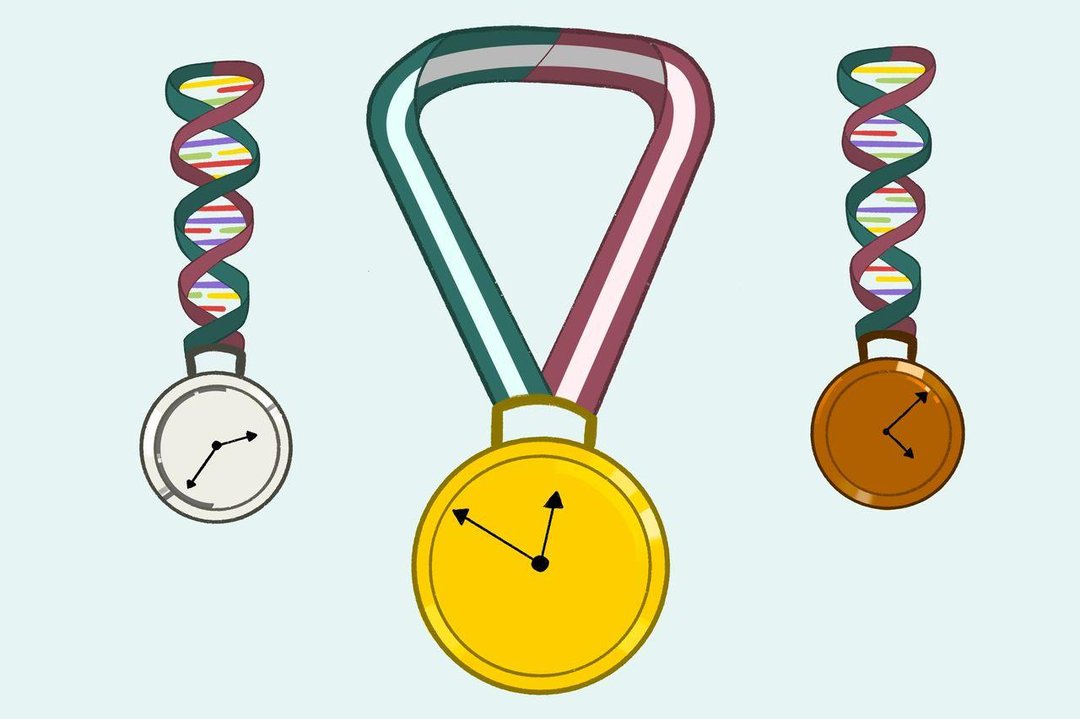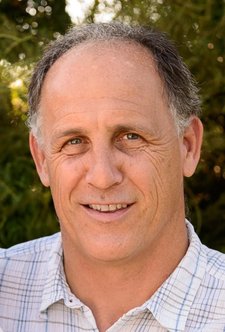
By Alex Janin
July 10, 2024
Longevity has officially become a competitive sport.
Welcome to the “Rejuvenation Olympics.” In this contest founded by tech entrepreneur and longevity bro Bryan Johnson, anti-agers take their health obsession to new levels. Just not dying isn’t enough. Instead, you have to not-die better than your competitor.

Chase Gaewski
You may know Johnson, 46, as the man who founded—and sold, for $800 million—the payments company Braintree. Or you may know him as “that crazy guy trying to not die,” as Johnson self-identifies in his X bio. He says he has spent millions on a viral self-experiment to age as little as possible—one that involves a regimen of dozens of daily powders and pills, gene therapies and more.
Once he began publishing his methods and corresponding health data, he encountered reactions from skepticism to outright vitriol. He decided to reframe his pursuit like a professional sport—and invite other players to the game.
“If you see LeBron James going to bed on time and exercising and eating well, you don’t think he’s crazy,” he explains. “You applaud his efforts on the court for what he’s doing.”

Bryan Johnson says his pace of aging means he celebrates his birthday roughly once every 19 months. PHOTO: BRYAN JOHNSON
Johnson came up with an antiaging competition that anyone can enter so long as they have completed a specific blood test to measure how fast they are aging biologically.
Online leaderboards launched in January 2023 track who’s the best anti-ager.
The key metric is “pace of aging,” or how fast your body is aging biologically per calendar year, as measured by a blood test from a company that manages the competition. Someone whose pace of aging is reported to be .85, for example, is said to be aging roughly 10 months for each year that passes. The test costs $230.
The leaderboard ranks entrants by the lowest average rate of aging.
Coming soon is another leaderboard that will show the slowest agers by organ system—such as who has the youngest kidney, liver and lungs relative to their chronological age. The test for this costs $500.
Some so-called “antiaging athletes” experiment with changes to their diet, exercise regimens and sleep, as well as supplements, off-label drugs and other medical interventions to see if they can drive down their scores.
“Rookies rule the leaderboards this month,” reads a September email from the Rejuvenation Olympics team to competitors unveiling the latest top 20. “Here are the record setting, top aging scores you would need to beat.”
Pound of veggies a day
Johnson says his most recent test revealed a biological aging rate of .64. But he isn’t leading the pack. Among those who have ranked above him at some point: Julie Gibson Clark, a (chronologically) 55-year-old recruiter and single mom in Phoenix.
“I’m just Joe Blow, I’m not a millionaire,” says Gibson Clark, whose key longevity tenets include walking, weightlifting, taking a supplement powder and eating a pound of vegetables a day. “What I’m doing is way more accessible to people and way simpler.”
Another top Rejuvenation Olympian is Siim Land, a 29-year-old biohacking influencer and longevity coach based in Estonia. At one point in June, he snagged the #1 spot on the leaderboard.
Land, who estimates he spends roughly $11,700 on his longevity protocol every year, says he’s not taking the competition too seriously. Someone else will beat him soon, he figures.
“It’s nice to be here right now,” he says. “But I’m not thinking about it like an actual title.”
Whether competitors are longtime biohackers or new to the nebulous world of aging and longevity—a field often plagued with claims that are hard to back up—many are drawn to the contest’s data-driven approach.
The competition is managed by the Lexington, Ky.-based company TruDiagnostic, which makes the biological-age tests contestants must take. There are roughly 8,000 participants in the contest, says TruDiagnostic co-founder Hannah Went.
TruDiagnostic says participants can take the test every few months if they want to see if they have lowered their score. Johnson says he doesn’t receive any compensation from TruDiagnostic.
“It’s not just about personal health, but it’s really about don’t die,” says Johnson, whose company Blueprint sells hoodies and hats bearing those words: ‘Don’t Die.’ He also sells supplements, olive oil and a powdered version of the vegan, gluten-free “nutty pudding” that he says he eats daily.
Doctors and researchers who study aging caution that, while biological-age tests are gaining traction, they are still far from perfect.
They don’t capture everything that affects biological age and various factors such as health conditions can sway the results. Some are also concerned the competition could push entrants to pursue risky, experimental methods. (To which Johnson says: “Life is a risk.”)
Exercise on layovers
In recent weeks, the competition’s rules have changed and rivalries intensified, leading some organizations to consider launching their own, separate leaderboards.
Dave Pascoe, who is 61 but whose biological age estimates range from roughly 38 to 52 depending on measure and test, describes himself as a full-time biohacker. He downs about 170 supplement capsules a day—a handful at a time, with a swig of smoothie or V8 juice to help them go down. “We’re talking, like, three to six swallows,” he says.
The prize for all of this? Right now, just bragging rights.
For Austin Doughty, a 33-year-old pilot and biohacker based in Miami, that would be enough. His first blood test revealed a pace of aging of .66. While working, he exercises on layovers, carries around tins of about 18 supplements he takes daily and packs meals full of ingredients such as lentils and broccoli sprouts.
“I don’t want to live my life for the leaderboard,” he says. “I just want to see if I can get on it.”
Write to Alex Janin at alex.janin@wsj.com
Dow Jones & Company, Inc.



